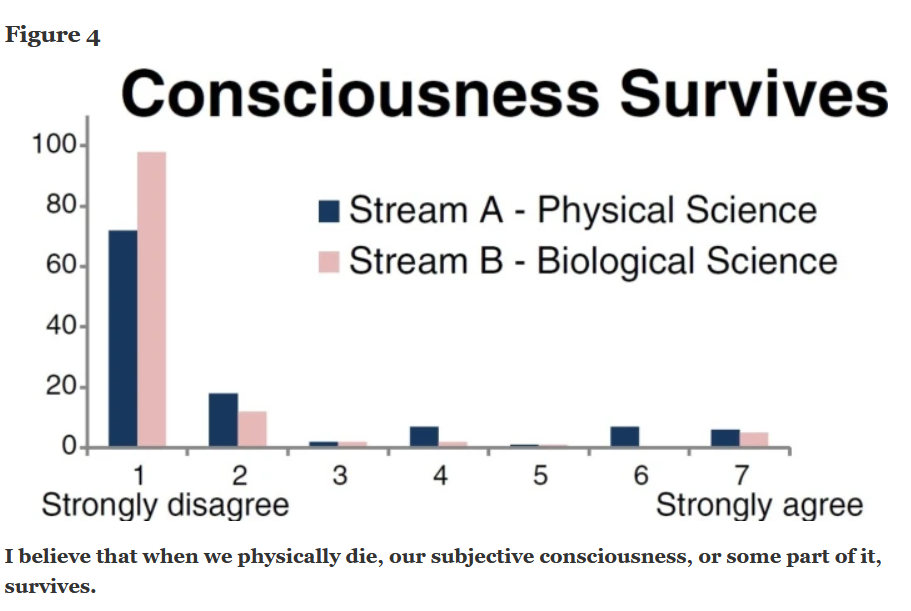The following ideas have long been rejected by the scientific skeptical community as superstitious and incompatible with reason:
- That the universe has been designed by intelligent being(s) - the so-called intelligent design;
- That supernatural interventions by supernatural beings in the natural world are possible;
- That there may be some life after death.
These ideas are typically associated with religious beliefs (although some religious authorities will also reject some of the above ideas, for example afaik intelligent design will also be rejected by some of the more scientifically inclined Catholics).
As far as I'm aware the simulation hypothesis is associated with the transhumanist community, which can be considered a subgroup of the scientific skeptics community (correct me if I'm wrong here) - while not all scientific skeptics are transhumanists, nonetheless tranhumanism did arise from scientism / neopositivism / humanism and did inherit its philosophical core from scientific skepticism (incl. the opposition to religion and putting forth rationalism and science as the only sound approach to getting knowledge about reality).
Nonetheless, it seems to me that certain transhumanist ideas are strikingly similar to beliefs typically associated with religion and the simulation hypothesis is not an exception here.
In order:
- The simulation hypothesis trivially entails that our world has been designed by intelligent being(s). Melvin Vopson claims that by scientific observations of information and entropy in the universe we can arrive at the conclusion that we live in a simulation. But this is intelligent design in its purest (and most vehemently rejected) form. Quoting Wikipedia's atricle about intelligent design: "Proponents [of intelligent design] claim that "certain features of the universe and of living things are best explained by an intelligent cause, not an undirected process such as natural selection."
- Unlike intelligent design, the simulation hypothesis does not necessitate supernatural interventions in natural world, but it does make such interventions seem probable. Perhaps we all are but NPCs in a video game. But in this case there will be at least one player character who might enter cheat codes if they are frustrated by their inability to progress in the game fast enough. Or they may load an old save state because they died (this effectively makes at least one person in the world unkillable, as if they die the whole timeline gets rewound). Or perhaps the developers will soon release a patch, effectively amending the laws of physics. Alterantively, perhaps we live in a scientific experiment and therefore some supernatural scientists will, from time to time, mess things up to observe and note results. Maybe they thought: "Let three beautiful women, all already used many times in other experiments, appear in front of a prince named Paris and let them demand that he chooses which one of them is the prettiest." Oh nice, the result was a war and the destruction of the city of Troy! They could now write a whitepaper describing that experiment. Or, likewise: "Let us speak through a burning bush to a man of a nation that has been enslaved by the Egyptians, promising him freedom". Again a whitepaper was written, describing the results. These scientists could quite well correspond to religious ideas of 'gods' or 'angels' or 'demons'.
- Life after death seems least probable of these three ideas under the simulation hypothesis, but nonetheless, under simulation hypothesis, it cannot be just rejected as absurd. If we are all just bits in a grand computer, then these bits may be saved and later restored. Maybe at least some NPCs will be reused in a later installment of the game we all live in. Or maybe - and that is even more strikengly similar to some religious ideas - we just live in an enormous penitentiary facility. We committed some crimes in the outside world, for these crimes we were uploaded to a simulated world that serves as a prison, but once our sentence runs out we might be restored to the outside world. Perhaps reincarnation is possible: for example, maybe I was sentenced to 50 lives in the simulation and once I die for the 50th time in my 50th incarnation I will be set free?
Am I correct that the simulation hypothesis makes a return to the above ideas, typically considered religious and long rejected by the rationalist community?

